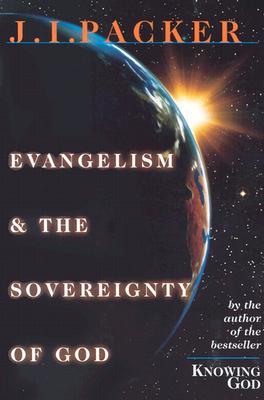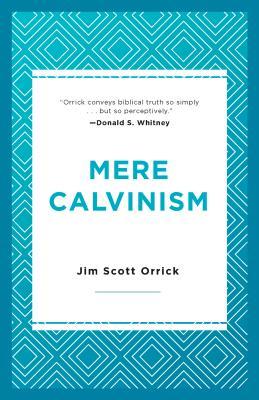Do you have a favorite?
But You, O Lord, are a shield about me,
My glory, and the One who lifts my head.
I was crying to the Lord with my voice,
And He answered me from His holy mountain.
I lay down and slept;
I awoke, for the Lordsustains me. Psalm 3:3-5
Meditate in your heart upon your bed, and be still. Psalm 4:4b
In peace I will both lie down and sleep,
For You alone, O Lord, make me to dwell in safety. Psalm 4:8
But let all who take refuge in You be glad,
Let them ever sing for joy;
And may You shelter them,
That those who love Your name may exult in You. Psalm 5:11
I will give thanks to the Lord according to His righteousness
And will sing praise to the name of the LordMost High. Psalm 7:17
I will give thanks to the Lord with all my heart;
I will tell of all Your wonders.
I will be glad and exult in You;
I will sing praise to Your name, O Most High. Psalm 9:1-2
The Lord is in His holy temple; the Lord’s throne is in heaven;
His eyes behold, His eyelids test the sons of men. Psalm 11:4
The words of the Lord are pure words;
As silver tried in a furnace on the earth, refined seven times. Psalm 12:6
But I have trusted in Your lovingkindness;
My heart shall rejoice in Your salvation.
I will sing to the Lord,
Because He has dealt bountifully with me. Psalm 13:5-6
I said to the Lord, “You are my Lord;
I have no good besides You.” Psalm 16:2
I have set the Lord continually before me;
Because He is at my right hand, I will not be shaken. Psalm 16:8
You will make known to me the path of life;
In Your presence is fullness of joy;
In Your right hand there are pleasures forever. Psalm 16:11
As for me, I shall behold Your face in righteousness;
I will be satisfied with Your likeness when I awake. Psalm 17:15
The Lord is my rock and my fortress and my deliverer,
My God, my rock, in whom I take refuge;
My shield and the horn of my salvation, my stronghold.
I call upon the Lord, who is worthy to be praised,
And I am saved from my enemies. Psalm 18:1-2
For You light my lamp;
The Lord my God illumines my darkness. Psalm 18:28
As for God, His way is blameless;
The word of the Lord is tried;
He is a shield to all who take refuge in Him. Psalm 18:30
The law of the Lord is perfect, restoring the soul;
The testimony of the Lord is sure, making wise the simple.
The testimony of the Lord is sure, making wise the simple.
The precepts of the Lord are right, rejoicing the heart;
The commandment of the Lord is pure, enlightening the eyes.
The commandment of the Lord is pure, enlightening the eyes.
The fear of the Lord is clean, enduring forever;
The judgments of the Lord are true; they are righteous altogether.
The judgments of the Lord are true; they are righteous altogether.
They are more desirable than gold, yes, than much fine gold;
Sweeter also than honey and the drippings of the honeycomb. Psalm 19:7-10
Sweeter also than honey and the drippings of the honeycomb. Psalm 19:7-10
The Lord is my shepherd,
I shall not want.
I shall not want.
He makes me lie down in green pastures;
He leads me beside quiet waters.
He leads me beside quiet waters.
He restores my soul;
He guides me in the paths of righteousness
For His name’s sake.
He guides me in the paths of righteousness
For His name’s sake.
Even though I walk through the valley of the shadow of death,
I fear no evil, for You are with me;
Your rod and Your staff, they comfort me.
I fear no evil, for You are with me;
Your rod and Your staff, they comfort me.
You prepare a table before me in the presence of my enemies;
You have anointed my head with oil;
My cup overflows.
You have anointed my head with oil;
My cup overflows.
Surely goodness and lovingkindness will follow me all the days of my life,
And I will dwell in the house of the Lord forever. Psalm 23:1-6
And I will dwell in the house of the Lord forever. Psalm 23:1-6
Make me know Your ways, O Lord;
Teach me Your paths.
Teach me Your paths.
Lead me in Your truth and teach me,
For You are the God of my salvation;
For You I wait all the day.
For You are the God of my salvation;
For You I wait all the day.
Remember, O Lord, Your compassion and Your lovingkindnesses,
For they have been from of old. Psalm 25:4-6
For they have been from of old. Psalm 25:4-6
O Lord, I love the habitation of Your house
And the place where Your glory dwells. Psalm 26:8
And the place where Your glory dwells. Psalm 26:8
One thing I have asked from the Lord, that I shall seek:
That I may dwell in the house of the Lord all the days of my life,
To behold the beauty of the Lord
And to meditate in His temple. Psalm 27:4
That I may dwell in the house of the Lord all the days of my life,
To behold the beauty of the Lord
And to meditate in His temple. Psalm 27:4
When You said, “Seek My face,” my heart said to You,
“Your face, O Lord, I shall seek.” Psalm 27:8
“Your face, O Lord, I shall seek.” Psalm 27:8
Wait for the Lord;
Be strong and let your heart take courage;
Yes, wait for the Lord. Psalm 27:14
Be strong and let your heart take courage;
Yes, wait for the Lord. Psalm 27:14
The Lord is my strength and my shield;
My heart trusts in Him, and I am helped;
Therefore my heart exults,
And with my song I shall thank Him. Psalm 28:7
My heart trusts in Him, and I am helped;
Therefore my heart exults,
And with my song I shall thank Him. Psalm 28:7
O Lord my God,
I cried to You for help, and You healed me. Psalm 30:2
I cried to You for help, and You healed me. Psalm 30:2
Sing praise to the Lord, you His godly ones,
And give thanks to His holy name.
And give thanks to His holy name.
For His anger is but for a moment,
His favor is for a lifetime;
Weeping may last for the night,
But a shout of joy comes in the morning. Psalm 30:4-5
His favor is for a lifetime;
Weeping may last for the night,
But a shout of joy comes in the morning. Psalm 30:4-5
Be strong and let your heart take courage,
All you who hope in the Lord. Psalm 31:24
All you who hope in the Lord. Psalm 31:24
How blessed is he whose transgression is forgiven,
Whose sin is covered!
Whose sin is covered!
How blessed is the man to whom the Lord does not impute iniquity,
And in whose spirit there is no deceit! Psalm 32:1-2
And in whose spirit there is no deceit! Psalm 32:1-2
I will instruct you and teach you in the way which you should go;
I will counsel you with My eye upon you. Psalm 32:8
I will bless the Lord at all times;
His praise shall continually be in my mouth. Psalm 34:1
O magnify the Lord with me,
And let us exalt His name together.
I sought the Lord, and He answered me,
And delivered me from all my fears. Psalm 34:3-4
O taste and see that the Lordis good;
How blessed is the man who takes refuge in Him! Psalm 34:8
The Lord redeems the soul of His servants,
And none of those who take refuge in Him will be condemned. Psalm 34:22
For with You is the fountain of life;
In Your light we see light. Psalm 36:9
I waited patiently for the Lord;
And He inclined to me and heard my cry.
He brought me up out of the pit of destruction, out of the miry clay,
And He set my feet upon a rock making my footsteps firm.
He put a new song in my mouth, a song of praise to our God;
Many will see and fear
And will trust in the Lord. Psalm 40:1-3
Many, O Lord my God, are the wonders which You have done,
And Your thoughts toward us;
There is none to compare with You.
If I would declare and speak of them,
They would be too numerous to count. Psalm 40:5
© Becky Laney of Operation Actually Read Bible
I will counsel you with My eye upon you. Psalm 32:8
I will bless the Lord at all times;
His praise shall continually be in my mouth. Psalm 34:1
O magnify the Lord with me,
And let us exalt His name together.
I sought the Lord, and He answered me,
And delivered me from all my fears. Psalm 34:3-4
O taste and see that the Lordis good;
How blessed is the man who takes refuge in Him! Psalm 34:8
The Lord redeems the soul of His servants,
And none of those who take refuge in Him will be condemned. Psalm 34:22
For with You is the fountain of life;
In Your light we see light. Psalm 36:9
I waited patiently for the Lord;
And He inclined to me and heard my cry.
He brought me up out of the pit of destruction, out of the miry clay,
And He set my feet upon a rock making my footsteps firm.
He put a new song in my mouth, a song of praise to our God;
Many will see and fear
And will trust in the Lord. Psalm 40:1-3
Many, O Lord my God, are the wonders which You have done,
And Your thoughts toward us;
There is none to compare with You.
If I would declare and speak of them,
They would be too numerous to count. Psalm 40:5
© Becky Laney of Operation Actually Read Bible







